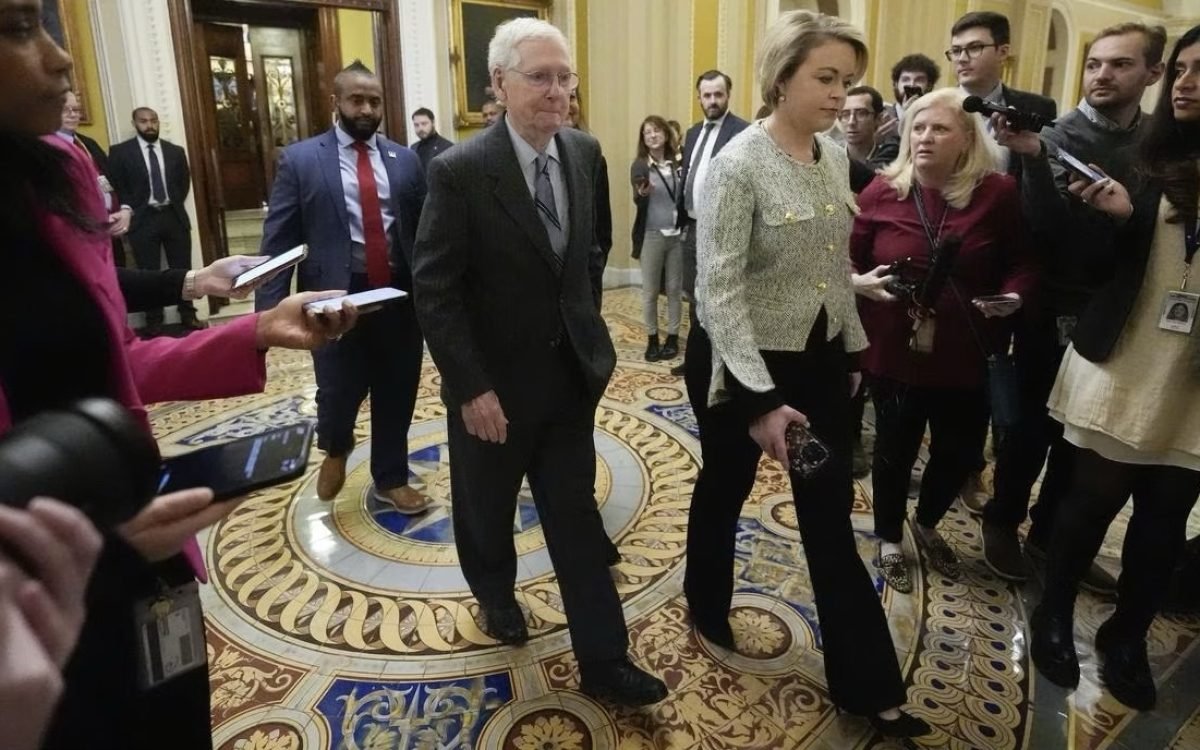The political landscape of the United States is set for a significant shift as Mitch McConnell, the venerable Senate leader, announces his departure from his long-held position in November. Representing Kentucky with a tenure marked by resilience and strategic prowess, McConnell’s decision marks the end of an era in Republican leadership.
At 82 years old, McConnell’s announcement comes with a sense of reflection and pragmatism, signaling a recognition of the inevitability of life’s transitions. In his prepared remarks, he articulates the understated wisdom of knowing when to embark on life’s next chapter, a sentiment resonating with the nuances of political stewardship and personal evolution.
McConnell’s tenure as Senate leader coincides with a profound ideological transformation within the Republican Party. From the era of Ronald Reagan’s traditional conservatism to the disruptive populism epitomized by former President Donald Trump, the party has navigated through tumultuous waters, shaped by shifting paradigms of governance and identity.
His decision to relinquish the reins of leadership underscores not only the changing dynamics within the Republican Party but also McConnell’s resilience in the face of internal discord and external pressures. Despite the estrangement from Trump and the vocal dissent within his party’s ranks, McConnell’s adept navigation has ensured a semblance of stability amidst ideological turbulence.
Reflecting on his legacy, McConnell pays homage to Reagan’s vision of American exceptionalism and global leadership, emphasizing the enduring values that underpin the nation’s role on the world stage. His steadfast commitment to bipartisan cooperation, exemplified by his efforts to secure foreign assistance for Ukraine, underscores a dedication to principled governance amidst political upheaval.
The strained relationship between McConnell and Trump, emblematic of broader fissures within the Republican Party, reflects the complexities of power dynamics and ideological divergence. While their collaboration yielded significant policy achievements, including judicial appointments and tax legislation, the rift widened irreparably in the aftermath of the Capitol riots, underscoring the irreconcilable differences in leadership style and political philosophy.
As McConnell prepares to embark on a new chapter, his departure heralds a period of introspection and recalibration for the Republican Party. With the mantle of leadership in transition, the party grapples with questions of identity, ideology, and the path forward in an increasingly polarized political landscape.
Mitch McConnell’s legacy transcends the corridors of power, embodying the intricate interplay between principle and pragmatism, conviction and compromise. As he steps away from the spotlight, his departure marks not only the end of an era but also the beginning of a new chapter in the annals of American politics.









